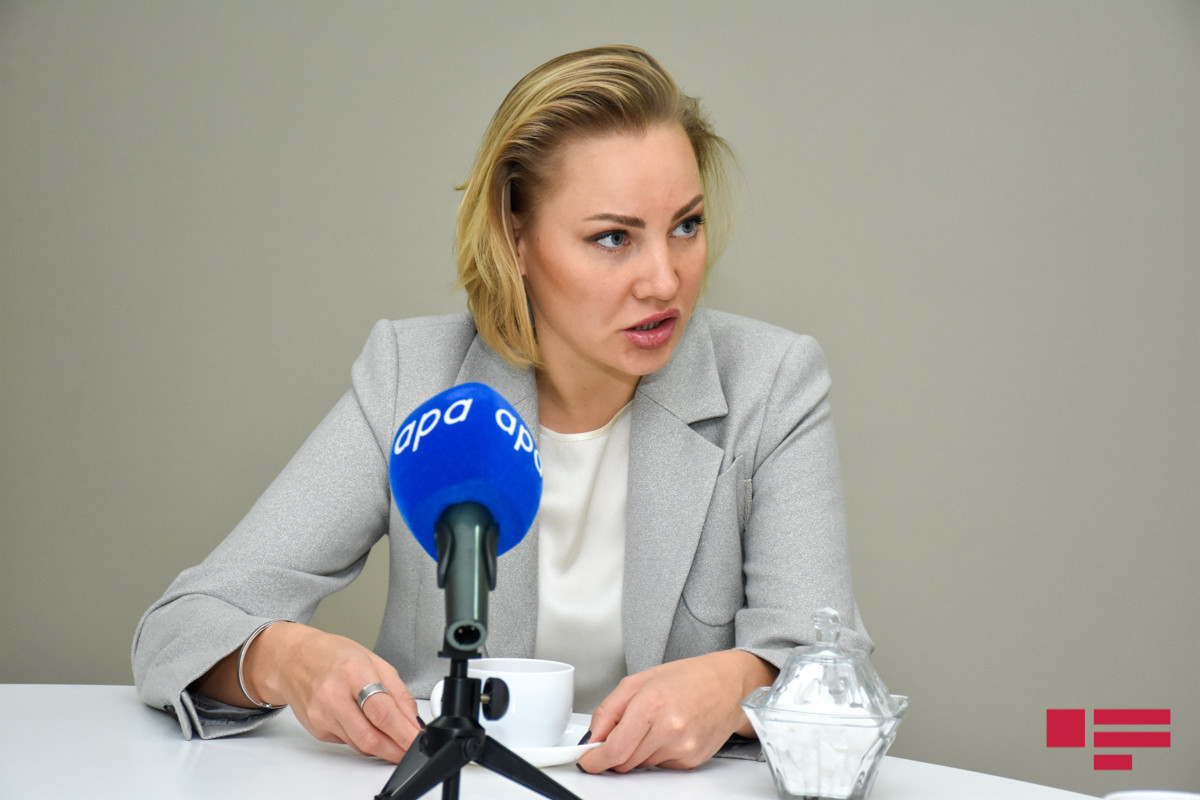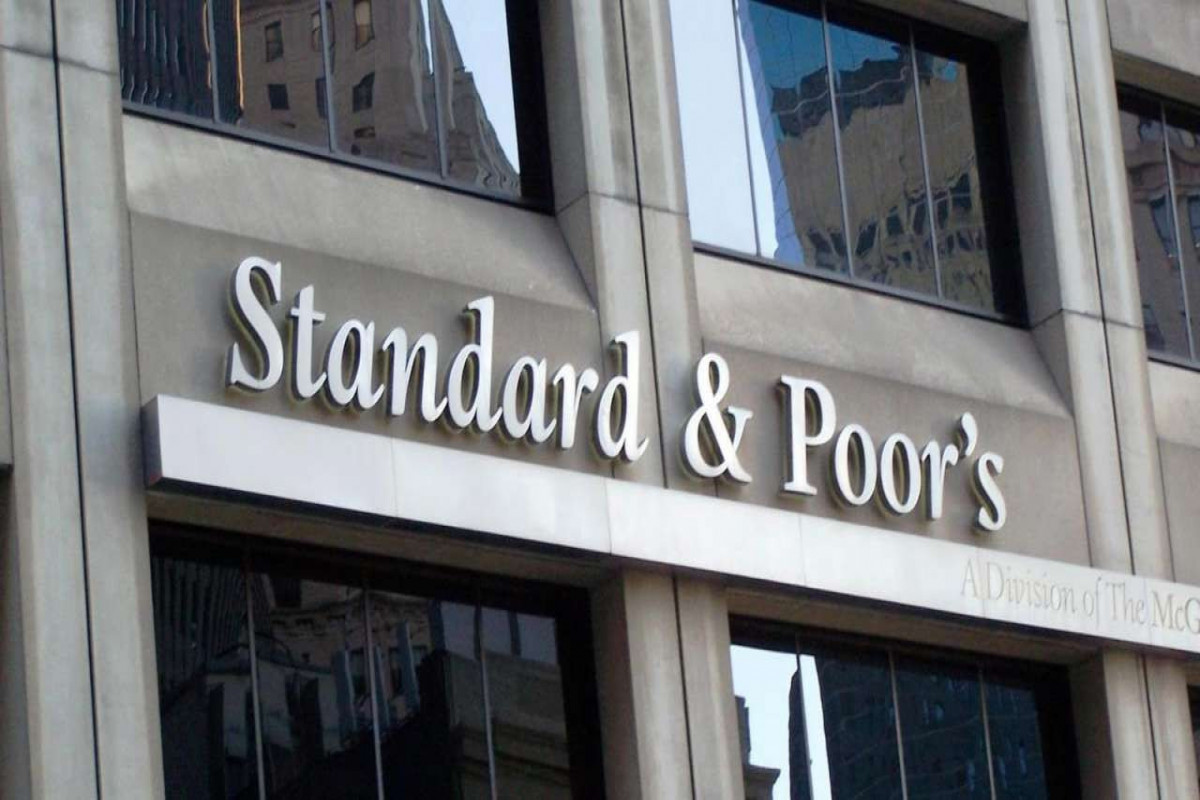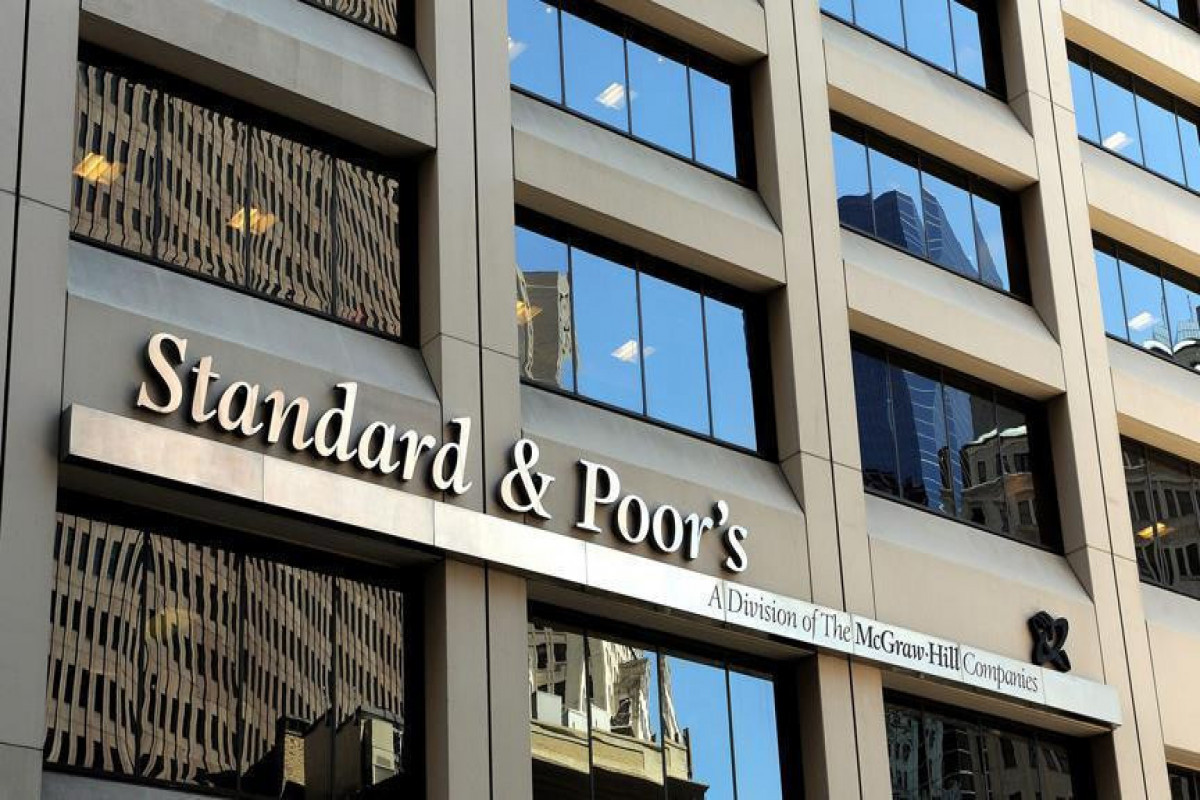"APA-Economics" presents an interview with Olga Goncharova, Director of Governmental Relations in CIS Binance:
-Recently, there has been a crisis in the cryptocurrency markets. Bitcoin and other major cryptocurrencies continue to fall in price. The fourth largest cryptocurrency exchange FTX has collapsed. What are the fluctuations in the cryptocurrency market?
What is happening now is just a period in the development of the crypto industry, and I strongly believe that it will recover very soon. On the other hand, the recent failures of some players will result in more attention to the industry from regulators, which we believe is good as users have all rights to be protected.
What we see today is a big industry challenge when all players need to unite and work together to make the industry more transparent and trustworthy. We at Binance believe that this situation will end well for the whole industry, as only the strongest and most reliable players and projects will survive and stay.
At Binance, we always felt responsible for our users and saw it as our main mission to protect them. We hope that recent events will help other players to realize the responsibility for the users and the need to cooperate and set strong standards for the industry. Binance sees its role today in uniting with other market players and developing common business standards.
Following this strategy, our CEO CZ published the six most important requirements that Binance and every other centralized exchange should adopt in order to ensure trust with our users. We cannot let a few bad actors sully the reputation of this industry when it's still in its infancy. Therefore, we encourage our peers in the industry to commit to doing the same and are eager to have this dialogue with the industry, regulators, and the community.
Also, Binance is forming an industry recovery fund to help projects who are otherwise strong but in a liquidity crisis. More details to come soon.
-How do you rate Binance's current status in the crypto market?
-Binance today is the world’s leading blockchain ecosystem and cryptocurrency infrastructure provider with a financial product suite that includes the largest digital asset exchange by volume.
Trusted by millions worldwide (more than 120 million users in 180 countries), Binance sees its mission to increase the freedom of money for users and features an unmatched portfolio of crypto products and offerings, including trading and finance, education, data and research, social good, investment and incubation, decentralization and infrastructure solutions, and more.
The secret of Binance’s growth is a true commitment and focus on users. We always put our users first. For example, back in 2018, we established the SAFU fund (The Secure Asset Fund for Users) to protect Binance users in extreme circumstances. Over the years, we’ve continued to monitor SAFU’s size, maintaining the balance at a level adequate to safeguard our users.
In January 2022, we announced that SAFU was worth $1B. Due to the recent market conditions, that value is now worth $735m. As of November 2022, we’ve topped the SAFU balance back to $1B. We made a promise to our user base, along with the larger crypto ecosystem, that SAFU would always maintain a sizable level. We’ll continue to uphold that promise and continue to keep building.
Besides protecting user interests’, SAFU’s definition encompasses three essential components towards mass adoption: trust, integrity, and transparency. This is why we called upon other centralized exchanges to follow our steps and publicly post their insurance wallet addresses. Users deserve to know if they are transferring their hard-earned money into a platform that employs adequate safety measures and is completely transparent with user funds.
- How do you assess the prospects of the cryptocurrency market for the short and medium term? What awaits us in this market next year?
-I am very optimistic about the development of cryptocurrency because the core of it is a technology that gives many advantages to people, and the technology will exist.
Cryptocurrency contributes greatly to financial inclusion as it’s convenient, cost-effective, and provides user protection as more and more regulators demand safer technology for users.
Today people are definitely worried about the situation in the crypto industry, and the short term, everything is perceived as “very painful.” But in the long run, we at Binance believe that everything is for the better. As our CEO CZ says: “The industry is not going anywhere, when we look at the whole situation in five years, we will understand that the crypto industry has become stronger.”
That is why it’s so important to increase the attention of the public and businesses on the issue of transparency among crypto-investments. Eventually, all crypto companies will have to communicate more closely with regulators and conduct their business more openly, led by Binance example.
- Binance participates in the Azerbaijan International Banking Forum for the first time. What are your main expectations regarding Azerbaijan?
-We are very pleased to participate in the international banking forum. This is a unique opportunity for us to get to know the traditional banking and financial community in the country. And also to tell and declare about ourselves.
We believe that Azerbaijan is a country with a very promising economy and one of the most advanced markets in the CIS region, a country that is able to implement breakthrough solutions in the field of finance. Therefore, we expect a lot from this forum.
Over the years, Binance has been vocal about the need for effective and appropriate regulation to help with the mainstream adoption of digital assets. We strongly believe that a stable regulatory environment can support innovation and is essential to establishing trust in the industry and long-term growth. We believe that greater regulation is inevitable and want to stress that “smart regulation” is beneficial to the safe custody of cryptocurrency. Like seatbelts in a car, a more regulated crypto market provides greater protections for everyday users. We want to do everything possible as an industry to work with regulators and government officials to identify effective regulatory policies.
Our primary objective over the past 18 months has been to assemble a globally recognized compliance and regulatory program. As a result of our strong compliance and KYC program, Binance has secured approvals and registrations across the EU - including France, Italy, Spain, and Cyprus - making us one of the few crypto companies to secure regulatory approval from G7 countries. Speaking about the Middle East, CIS, Asia Pacific, Africa, and the Americas, Binance has secured approvals and registrations in Bahrain, Abu Dhabi, Dubai, Kazakhstan, Australia, New Zealand, South Africa, Canada, and Colombia.
We are always open to dialogue with regulators and the financial community and will be happy to share our experience during the forum. We would definitely like to start our collaboration with the Azerbaijan government on different aspects. Being the biggest player in the crypto market, we would like to contribute to the understanding of this technology in the country.
- Approaches to regulation in Azerbaijan - what strategy should regulators adopt? Inclusion and adherence to best practices in regulation, or a wait-and-see approach?
If there should be regulation, what kind?
-Being the biggest player on the market, we work with many countries and collect the best practices of crypto regulation. Some governments are more crypto-friendly, and some are more cautious about crypto adoptions, but I can definitely say that there is a global trend right now that crypto shouldn’t be banned, it should be regulated instead.
In the case of regulation, you do not move all transactions to the gray area. instead, clear regulation and transparent rules allow taking all transactions away from the shadow and create win-win situations for all players.
I understand that in Azerbaijan, there is no crypto regulation so far, but all the crypto services exist and you can not prohibit the internet. Users are trading at crypto platforms y and transferring money from fiat to crypto and backward.
So in this sense, it's important to start the dialogue at this forum.
As for strategies, when we talk about cryptocurrencies, we need to understand what specific areas of regulation we are talking about - money laundering, KYC, regulation of trading platforms and crypto exchanges, or regulation of some new breakthrough technology areas, such as DeFi.
If we talk in general about the regulation of crypto circulation and trading platforms, which is built around the FATF recommendations and around the need to implement KYC procedures, combat money laundering, and comply with FATF travel rules, then the global consensus of all regulators is not to prohibit, but to regulate. It is not necessary to adhere to the wait-and-see strategy but to follow the best practices in the field of application and regulation of FATF requirements. If the industry is not regulated or just prohibited, then it will be in the gray zone, and this is not good for any state. Moreover, it causes additional risks for ordinary users who can easily become victims of different scams. But if regulated, it promotes innovations in the countries, attracts new resources, and gives additional money to the budget.
Protecting users is a top priority for all industry players and regulators. Countries such as Kazakhstan that intend to become the leading players in the new digital technologies are already making significant changes to the legislation and regulatory environment, thereby setting the highest standards. The government of Kazakhstan takes an active position in the field of regulation of the cryptocurrency market, which absolutely contributes to the protection of user funds and the regulation of local exchanges.
Speaking about the regulation, for example, of the DeFi sphere, which is now receiving a lot of attention from the European regulator and the Basel Committee on Banking Supervision, everything is at an early stage.
Summing up, we would recommend not burying your head in the sand but still researching the best international practices and taking the first steps towards developing legislation aimed at regulating cryptocurrencies in the country since it will contribute to better users protection, tax contribution to the budget, and support innovations.
-What should investment strategies be in the conditions of volatility in the cryptocurrency market?
-Cryptocurrency investment is subject to high market risk. We always inform our users to make their investments cautiously. Binance will always do its best to choose high-quality coins but will not be responsible for users’ investment losses.
The general recommendation from all experts is that no one should invest in assets they don’t understand. It is very important to use DYOR (Do Your Own Research) strategy and study as much as you can and educate yourself to build a solid understanding of this industry before one starts to consider purchasing digital assets.
To help our users, Binance Academy recently launched free courses in over 20 languages.
You can read articles, watch videos, and take online courses on a variety of topics, including blockchain, cryptocurrency, security, technology, and more.
-What measures does Binance take to protect users from crypto scammers? What are the mechanisms for cooperation with the authorities?
It’s important to debunk the myth that fraud and scams are something that is widely spread just only in the crypto industry. Statistically, the number of fraud cases in crypto is still much less than in the traditional finance and banking sphere. But since the whole industry is very young, there is a general mistrust and lack of knowledge among people.
Binance has created an industry-leading global security and compliance team with more than 500 employees to support users across the globe. Our team includes professionals with backgrounds as regulators, senior investigators from distinguished blockchain analysis firms, and law enforcement agents who have led some of the largest investigations into cybercrimes.
As an example, between November 2021 and September 2022, the Binance Investigations team responded to more than 27,000 law enforcement requests with an average of three days response time, which is faster than any traditional financial institution.
Protecting users is the number one priority at Binance. We use both internal and external tools to detect phishing websites at various user lifecycle stages, from domain name registration to a website going live. Any detected phishing websites are taken down through multiple third-party vendor services. We also provide users with strong two-factor authentication options, such as Yubikey, to prevent scammers from obtaining access to their accounts. For detecting and preventing account take-over attempts, we use user behavior-based machine learning models. Step-up verifications are required for those cases.
We are committed to working with regulators and policymakers to shape policies that protect consumers, encourage innovation, and move our industry forward.
For example, Binance policies and processes comply with AMLD5/6 anti-money laundering and counterterrorism financing requirements in Europe.
Binance and its subsidiaries have a policy of cooperation and compliance with all lawful information requests and legal inquiries from government, local regulatory, and law enforcement authorities pertaining to investigations, prosecutions, and forfeiture actions.
Ensuring the secure and sustainable growth of the global crypto ecosystem also involves doing our part to bolster international cybersecurity. To that end, we are continuously updating and expanding our in-house anti-money laundering (AML) detection and analytics capabilities.
We partner with public law enforcement and private-sector AML organizations to monitor suspicious activity. From the initial seed of accounts provided by our partners, we conduct investigations that enable us to expand the suspect network by identifying other connections or indicators of compromise.
Binance launched a global training program for LE and prosecutors on how to detect financial and cyber crime, which will ensure that, over time, LE requests become more targeted and focused. This is a critical step to ensuring the safety of the blockchain ecosystem while allowing for innovative solutions to progress.
Binance has conducted 30+ trainings and workshops with Law Enforcement and Federal Prosecutors globally, including Brazil, the US, Europe, Asia, and Canada.
-How do you see the future of the cryptocurrency market, and what are your plans?
-Cryptocurrency is the future, it gives so many benefits to users and tends to spread into every industry and aspect of our lives. For the same reason, cryptocurrency will also become part of the mainstream finance industry, as top global institutional investors and banks have already started to consider cryptocurrency as part of their portfolios.
As for Binance, we will continue our mission to increase the freedom of money for people around the world. Binance is making crypto accessible to everyone by opening up a wide range of financial tools across a growing ecosystem while maintaining some of the lowest fees in the business.
- Currently, the Central Bank of Azerbaijan is working on the creation of a digital manat. Is cooperation with "Binance" expected in some way in this field?
- Creating digital currencies (CBDC) is a complex process. Currently, more than a hundred countries are conducting research on this technology. This is good because central banks have also already started to turn to new technologies. In this regard, we strongly support the creation of digital currencies. One of the biggest concerns is privacy and security. If digital currencies can provide financial stability and protection of users, central banks can develop the process related to CBDC. Currently, we are cooperating with Kazakhstan as a pilot in the test phase of creating a digital currency. Russia, Kyrgyzstan, and other Central Asian countries are working on the CBDC. Next year, Georgia will also start a pilot project in this field. We can also cooperate with Azerbaijan in this field.






